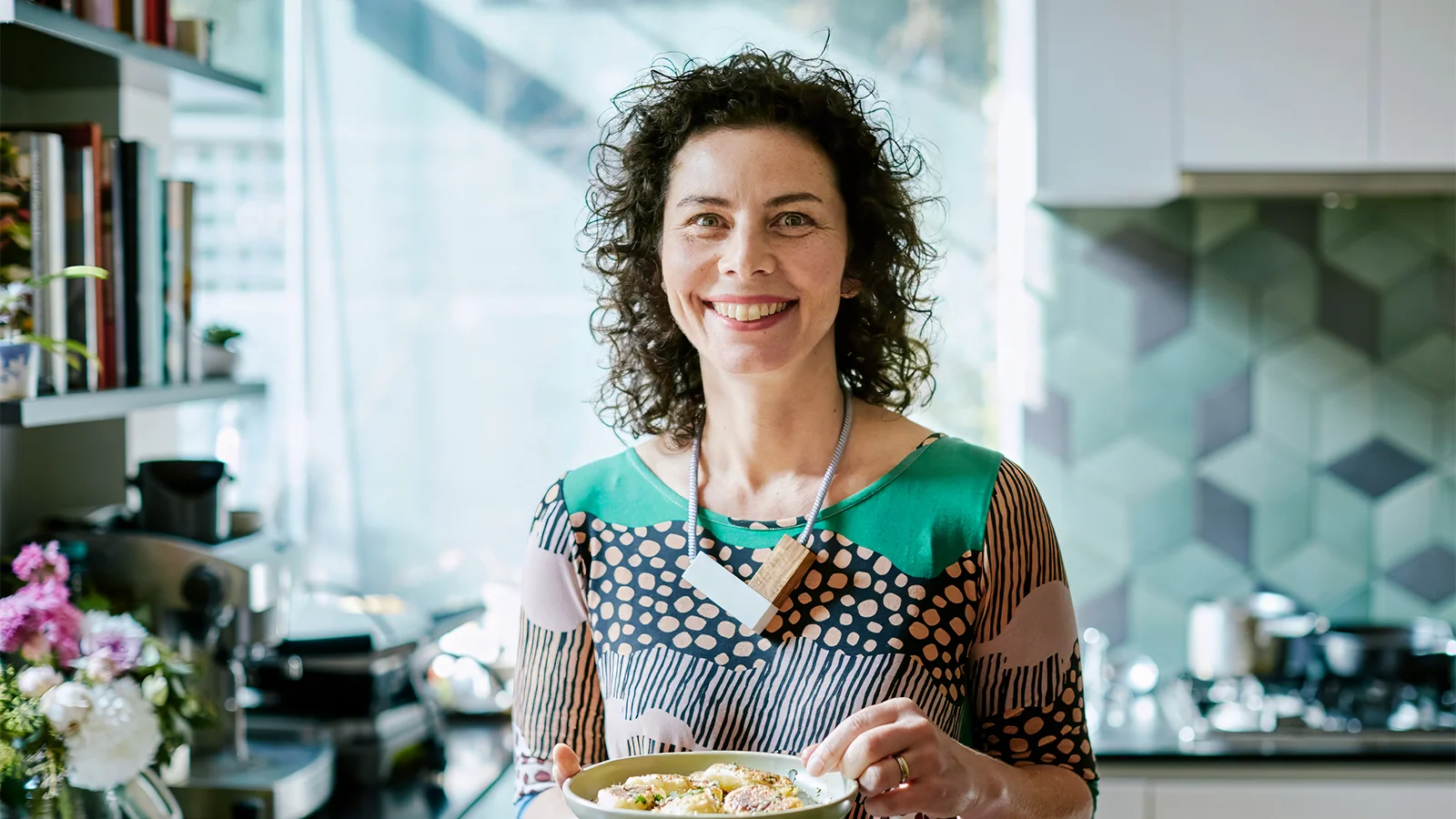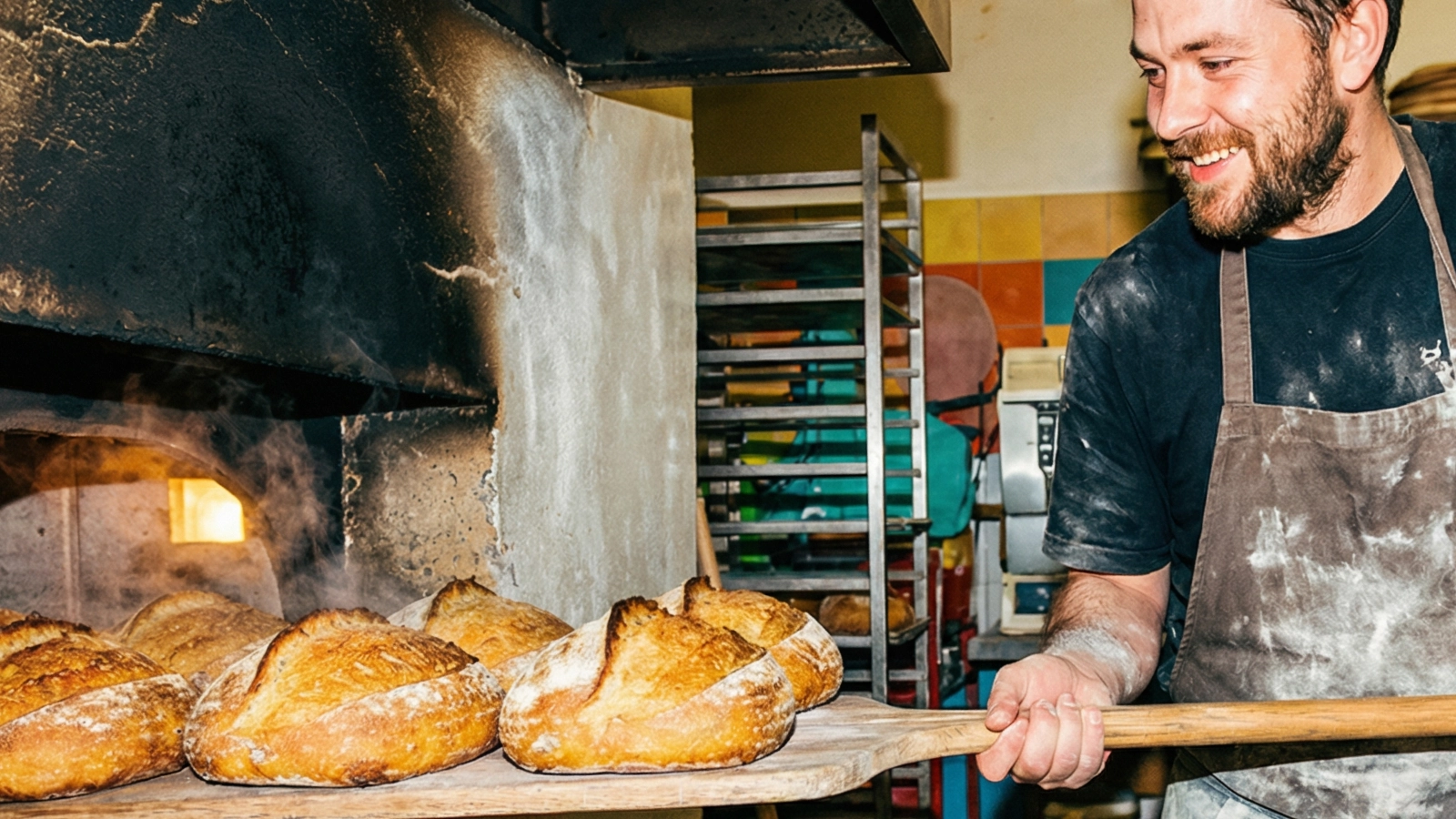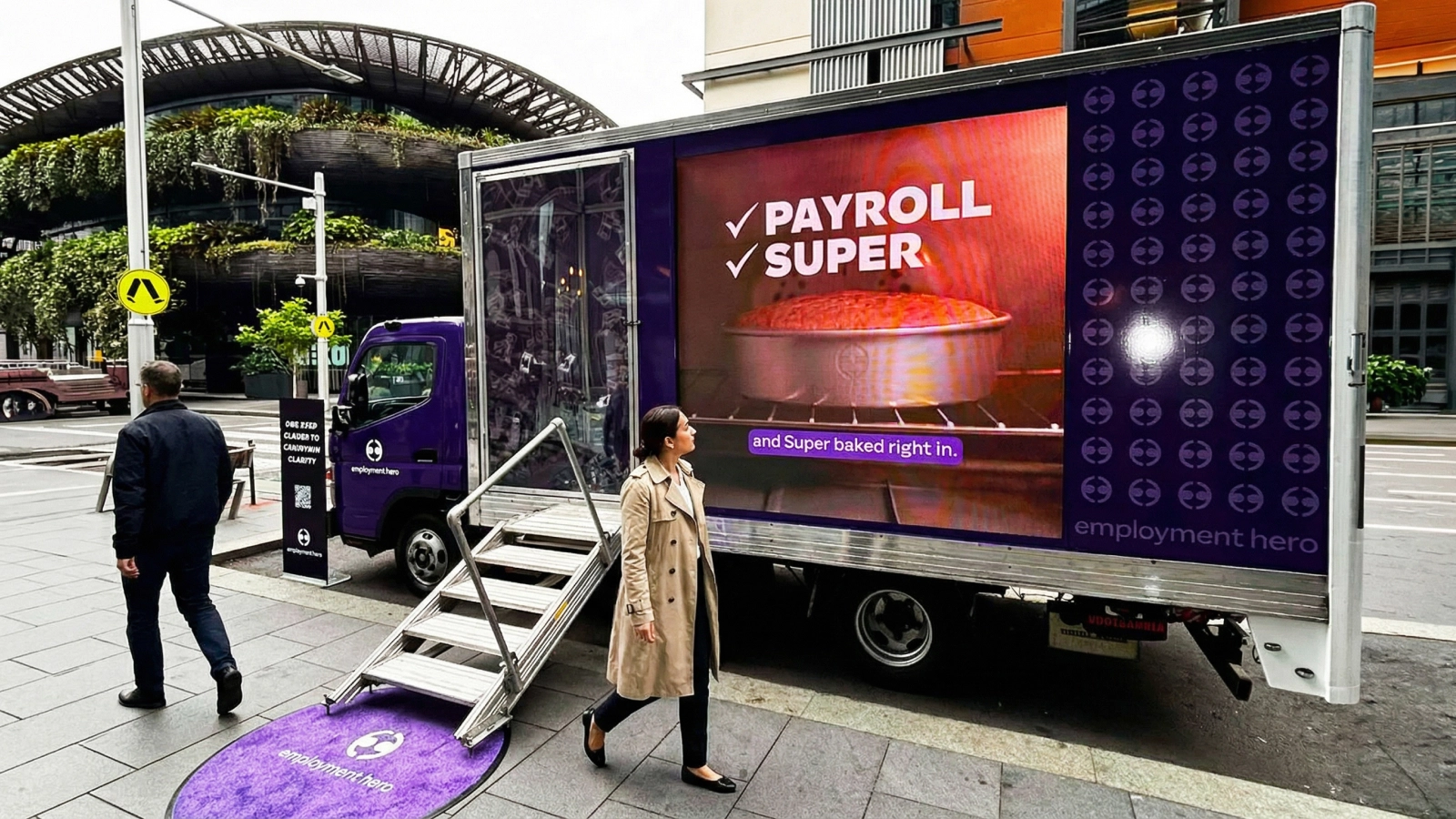In 20 years as one of the nation’s top food critics, Dani Valent has established herself as a leading voice in hospitality, well-placed to advise aspiring entrepreneurs.
Top chefs are among more than 800 guests who’ve shared wisdom on her podcast, Dirty Linen, including Curtis Stone, Neil Perry, Ben Shewry, Guy Grossi and Shannon Bennett. But talk of food invariably turns to business. For Dani, the pressures of hospitality mirror the realities confronting small businesses everywhere: higher costs, slimmer margins, savvier customers and the need to adapt while staying true to your purpose.
You Can’t Wing It Anymore In Hospitality
Early in Dani’s career, Melbourne’s food scene consisted of an eclectic collection of passion projects. Watching ‘the restaurant business’ adopt business concepts has been a seismic shift. She says it’s never been harder to get a successful hospitality business off the ground.
“Restaurants have become a lot more professional over that period. They’re less run on passion and a food dream, and more attention is necessarily being paid to running a compliant, lean, smart business.”
Corners can no longer be cut when it comes to compliance.
“The good things are that people are more likely to be paid properly. Suppliers are more likely to be paid in full and on time, and tax is more likely to be paid. Super is going to get paid.”
If there were hold-outs, the pandemic weeded them out, she explains. “Especially since covid, the businesses that were running more on cash or didn’t have good relationships with suppliers… it was just harder for them than for the regular business.”
Restaurants Can’t Run On Romance Anymore
The professionalisation of hospitality has made life harder for chefs who prioritise soufflés over spreadsheets and passion over profits.
“You still need the passion,” Dani says, “but you can’t express your passion unless you’re running a viable business. People have to learn that pretty quickly, because you can lose a lot of money really quickly in a restaurant.”
She says founders with no business training can quickly find themselves swamped with admin, cost management, payroll and red tape.
“A lot of business owners aren’t paying themselves, or they’re not paying themselves properly,” says Dani. A recent federal ombudsman report supports her point: 43% of small businesses failed to make a profit and 75% of small business owners took home less than the average wage.
“There’s a lot of compromises that people make to live their food dream,” she says.
But the challenge is still worthwhile – otherwise, no one would do it.
“People are endlessly expressive around food and have important stories to tell. They have this vision and they want to express it. It must be a pretty powerful urge.”
Alongside passion and profit, she says purpose is also key to running a successful business.
“Where I think restaurants fall down most dramatically is in not having a clear identity, not having a clear mission. In the panic of financial pressures. I think those kinds of confused businesses can be very confusing for a punter because you really don’t know why you’re there and then you don’t really have a reason to go back.”
These Ingredients Make A Great Restaurateur
Of the countless chefs and owners she’s interviewed, the most successful share key personality traits – qualities that go beyond the cliché of a hot-headed perfectionist.
“I think you need to like people,” Dani says. “So, be pretty glass-half-full when it comes to humanity. See the best in people but also have a pretty strong sense of self, so that you are clear that perhaps not everyone is your customer. You’re not going to please everyone and that’s okay.”
Restaurateurs must wear not just a chef’s hat but many hats.
“You need to be pretty good at multitasking and keeping a lot of balls in the air at once. It’s that tricky meeting place of meeting customers where their desires are but also being able to express something clear yourself. It’s quite a complex formula.”
The biggest challenge can be finding perspective and focus among competing priorities.
“Restaurants operate a lot on urgency, you know, someone wants their coffee now or they need their dinner in the next 20 minutes. But it can be very hard when that is the energy in the business for people to have the overview and to work on their business. Any entrepreneur knows that you have to balance that.”
Get a Taste For Your Neighbourhood And Lean In
Another shift Dani has seen is the rise of groups and franchises, as owners use economies of scale to spin single restaurants into multi-location entities. The more ambitious may find inspiration in the success of Guzman Y Gomez, which grew from one shopfront in Sydney to a $3 billion debut on the ASX.
But Dani says owners without plans for global expansion can still thrive in the suburban strips GYG now dominates.
The secret is being a good neighbour, she says.
“Community is the big one. I think a lot of people go into restaurants thinking they need reviews and awards and outside recognition, but I would say every restaurant needs to lean much more into community than accolades and media.”
She says owners should never underestimate the power of proximity and word-of-mouth.
“It’s their locals that are going to be the ones that decide whether they succeed or fail as a business. The value of someone talking in the hairdresser about the meal they had last night is much more valuable than something that I would do in a newspaper article.”
The Art of Changing and Staying the Same
While it’s hard to predict the next hot trend, it’s inevitable the food scene will continue to evolve. Dani says hospitality owners must build adaptability into their business plans.
“It’s that balance between consistency and constantly tweaking,” she explains.
But striking the balance is a fine art, especially in the early days.
“One mistake would be spending too much upfront and not having a kitty to keep them going through the big peaks and troughs of the opening months. They start discounting savagely, or they start adding a parma because the restaurant next door seems to be selling a lot of them. It can lead to desperation and losing sight of mission and identity.”
The best operators, she says, find a way to retain their identity but move with the times.
“Restaurants are such complicated businesses, which is why I love watching them and thinking about them, and I know I’ll never get sick of it, because there are so many moving parts. It’s a very rare restaurant that is always the same year to year. They’re always flexing with the seasons or with the personnel or with what the market wants. The ones that can do that and still stay true to themselves, they’re the rare beasts that you just love.”
- Run the business as seriously as the craft – great operators pair creativity with systems, structure and clear financial discipline
- Balance heart with hard numbers – passion fuels momentum, but only profitability keeps the doors open long enough to express it
- Lead with clarity, composure and self-belief – the strongest founders know who they are, who they serve and which pressures to rise above
- Invest in the people closest to you – lasting success is built on local trust, consistent experience and the relationships you nurture every day
- Stay adaptable without losing your identity – adjust as markets shift, but keep your mission constant so customers always know what you stand for



























